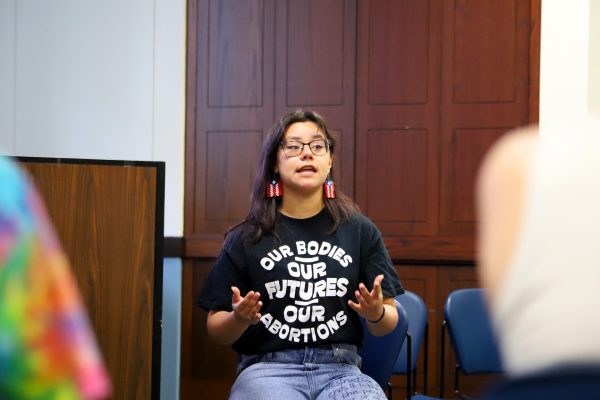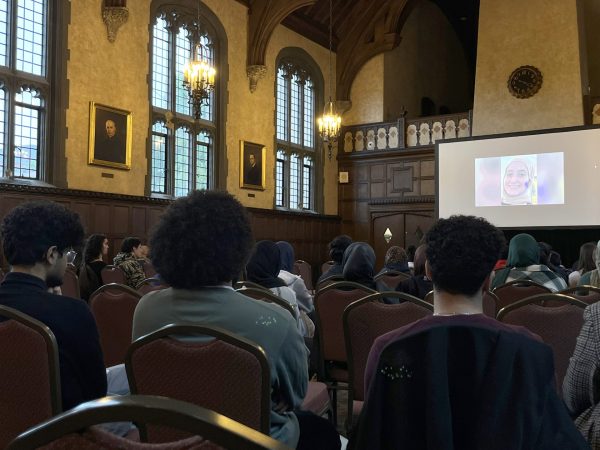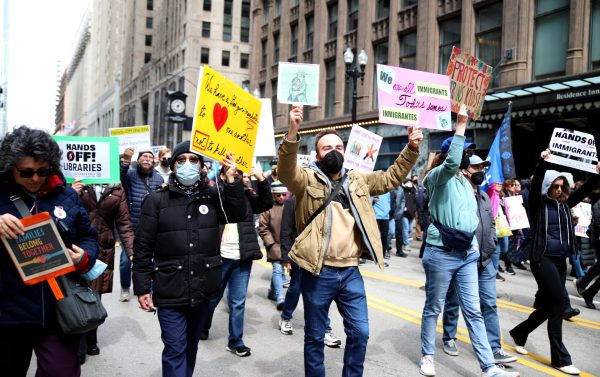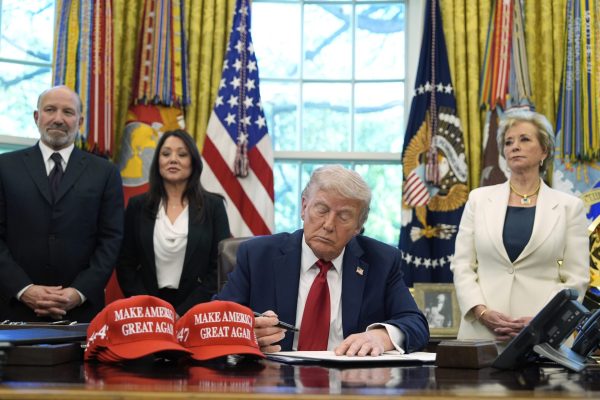Faculty Council addresses diversity report, SNL restructuring
DePaul’s Faculty Council offered several updates to university affairs as it addressed a newly released diversity report, amendments to the handbook and the School of New Learning restructuring at its Feb. 6 meeting.
The diversity report’s data reflected self-reported racial demographics from 2002 to 2017. The change in the full-time faculty demographic in 2017 accounted for 67 African-American faculty members, eight more than the 59 accounted for in 2012. White full-time faculty decreased to 584 in 2017 from 640 in 2012. Hispanic full-time faculty dropped from 59 to 52; multiracial full-time faculty remained the same at 8 and Asian full-time faculty stayed the same at 51.
Department Chair of Political Science Valerie Johnson told The DePaulia that though she commended the university for issuing its first diversity report, she found issues with the data it conveyed.
Johnson said the report was inaccurate because it did not reflect the shifts that occurred in 2018. A newer, more accurate report Johnson cited showed a 7.5 percent decline in African-American faculty from 2017.
“There should also have been in that report something about student populations that was not aggregated as a whole,” Johnson said. “I think there are some issues relating to undergraduate enrollment that we as an institution may need to examine.”
Johnson also said the report was incomplete because it did not address the decline in African-American student enrollment.
“We should be committed to recruiting and retaining faculty of color,” Johnson said. “Faculty of color are needed to assist students of color in matriculating at a predominantly white institution.”
Johnson noted the black graduation rate, which was only 52.5 percent, she said. She also said the student climate survey cited black students saying they are treated differently and encounter more racial issues.
“[Black students] are not satisfied with the level of student diversity, staff diversity or faculty diversity,” Johnson said. “That may have an impact on these bottom line numbers.”
The council later addressed a change to the Faculty Handbook regarding the definition of misconduct following former law professor Terry Smith’s civil rights lawsuit that alleged members of the law school painted him as a bully in response for his advocacy on racial issues.
Quinetta Shelby, chair of the chemistry and biochemistry department, said the misconduct section of the faculty handbook could feed into harmful stereotypes. She said the policy has led to her being accused of being an “angry black woman.”
“What one person may define as a pattern of extreme intimidation and aggression may be very different from what someone else may define as that,” Shelby said. “The problem is that faculty of color may be the target of this.”
With the handbook revision, the definition would be open to interpretation, Shelby said.
Allison Ortlieb, the assistant dean of academic operations in the College of Law and co-chair of the Committee on Contingent Faculty, also addressed the potential amendments to the handbook. She said that the proposal of professor nomenclature changes was due to adjunct professors not receiving benefits, regardless of how many years they had been teaching.
Ortlieb told The DePaulia that the proposal’s committee includes members from tenure-line faculty, full-time term faculty who are not on the tenure track and adjunct faculty, with two representatives from every college.
“Adjunct faculty don’t have much recognition in the faculty handbook and would like a mechanism to have an ability to be promoted and recognized for their service and mastery of teaching,” Ortlieb said. “This is our effort to try to make that happen.”
Acting Provost Salma Ghanem and Interim Dean for the SNL Don Opitz presented an update on the SNL restructuring. SNL has been in turmoil for months after restructuring efforts led to buyout offers for tenured professors and a failed effort at unionizing led to more uncertainty for faculty and staff teaching in the college.
Opitz said that the vision for the new school will be a space of innovation. Part of what the faculty is buying into is being in that innovative space intellectually and in terms of creativity, he told the council.
“The moment that we fix what this school is gonna be about, it may need to change,” Opitz said. “It’s gonna be part of the dynamic. It’s moving forward.”
Ghanem said she wanted people’s opinions on how to proceed, and that her impression was that people wanted more structure than what currently exists.
“This is a broad outline—’draft’ is written all over it—so that people will provide input if they see areas that are missing, areas that should be explored that might not have been explored in that structure,” Ghanem said.
Ghanem said she and Opitz wanted feedback on the framework of the structure that Opitz presented to the faculty and staff, with the understanding that current SNL programs will continue to be offered. She also said if faculty members do not want to take the voluntary buyout, they do not have to take it.
Ghanem said the exact detail is difficult to ascertain until they know how many people are willing to take the voluntary buyout.
The faculty should add updates and new decisions to build upon the document as an anchor for the restructuring process, Opitz said.
“Determining the future of this school is very much going to have to rely on the faculty and staff of the school,” he said. “I fully expect my colleagues to be part of the conversation. You’re potentially influencing how people decide on their futures.”





